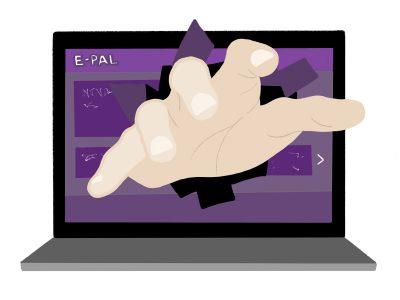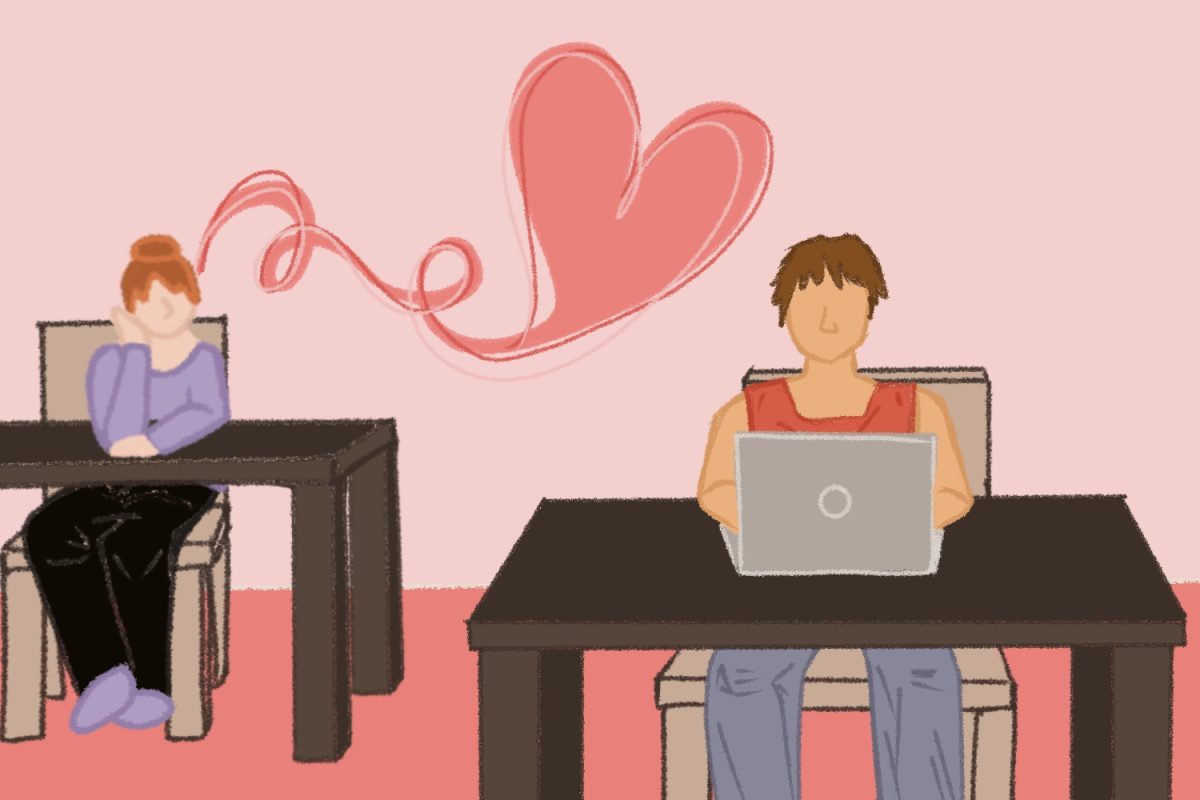Two weeks ago, I was on a mission to propel myself into online stardom. I had discovered a website, E-Pal, that essentially gives people a platform to sell their time. The women who participate on this website are casually known as e-girls, and the men are known as e-boys.

The premise was simple: choose a video game, set a price and get “ordered” by strangers around the world who want to play with you. E-Pal takes a 10-percent commission fee and a 25-cent withdrawal fee, but the rest of the money goes straight to your PayPal.
As a college student with far too much free time on my hands, the website sounded attractive — I would get paid to play video games. So, I set up my account, chose a pretty selfie for my profile picture and began my e-girl journey.
I did not expect to climb the E-Pal ladder so quickly. In my first week on the website, I reached the highest rank of e-girl, E-Star 2, had four regulars who ordered me often and was getting three or four new order requests daily. I placed third in “Popular Rookies” and was in the top 5 percent of earners on the site.
However, as the week came to a close, I quickly started realizing that maybe e-girlhood wasn’t for me. Putting a price on playing League of Legends actualized my greatest insecurity with men — feeling like I owe them even if they make me uncomfortable. With a dollar sign behind my time, it became hard to make the distinction between male entitlement and completing a service.

Feminist philosopher Kate Manne explored how male entitlement upholds patriarchy in her book “Entitled: How Male Privilege Hurts Women.”
Manne explained in an interview with The New Yorker that her book focuses on answering the question: “What are these patriarchal norms and expectations, especially in superficially more egalitarian contexts, like America today?”
She found the root of this issue to be the problematic, internalized power hierarchy that makes men feel as though women have a responsibility to fulfill their needs.
As Manne puts it, “A lot of these norms and expectations take the form of what men are deemed to be entitled to and what women are held to be obligated to give to them.”
Although I typically try to be aware of internalized misogyny in my everyday life, on E-Pal, the line was blurred. These men weren’t simply entitled by an abstract understanding of patriarchy, they were entitled by something more tangible: money. After all, I was being paid for a service. So I was left wondering, how much of myself do I owe these men?
Last week, I was playing a game of League with my friends. After blowing them off for a couple of days to fulfill orders, I had finally found some time to play for fun. When the round ended, I checked my E-Pal notifications and noticed a regular of mine — who we’ll call Lloyd — had left me a passive aggressive message demanding a refund.
When I asked him where his sudden tone shift came from, he explained he was hurt that I didn’t play with him first.
At the time, I felt a confusing mixture of discomfort and guilt. In my head, I knew something was off about Lloyd’s aggressive behavior, but I had quickly justified his reaction with his wallet. I had to fulfill his orders first, right? That’s what he’s paying for, right?
Manne calls what I experienced with Lloyd “himpathy.” In her book, she defines this phenomenon as extending “disproportionate or inappropriate sympathy … to a male perpetrator over his similarly or less privileged female targets or victims.”
Lloyd was dangling his money over my head and manipulating me into feeling sorry for not prioritizing him over my friends. It was an abuse of power that I fell for.
So, I apologized. He forgave me and I played a game with him for free to make up for it. The next day when he put in his order, I decided to tell him in advance I wasn’t interested in accepting the offer at the moment. I wasn’t quite sure how my schedule would pan out, and I didn’t want a repeat of what had happened the day before.
So, Lloyd messaged me, promising he wasn’t going to order from me ever again. Once again, he dangled his wallet over my head, but this time, I didn’t take the bait. I ignored him for several hours only to check back and find an expensive order from Lloyd in my inbox.
That’s when I realized, if he couldn’t scare me into playing with him — by threatening to not give me money — through “himpathy,” he was going to try to buy me by outbidding his competition. Either way, it stemmed from him feeling like he was most deserving of my time.
In her New Yorker interview, Manne explained that the obligation men feel entitled to takes form in more ways than just sex.
“More insidiously,” Manne said, the obligation men desire finds itself in “things like love and care and attention and affection, as well as honoring their claims to knowledge and power.”
As an e-girl, men felt entitled to my time.
My experience on E-Pal revealed to me the site was a small-scale patriarchal ecosystem I was actively contributing to. Justifying the misogyny I faced with the money I was making was my attempt to self-sooth.
After all, no one wants to feel taken advantage of. But the reality is, putting a price on your time — especially as a woman — makes you more vulnerable to perpetuating male entitlement.
Of course, the reality is E-Pal and websites like it are an additional source of income that can be necessary for some people. I’m lucky enough to be able to stop using it at my convenience. But, if you choose to participate, it’s important to be conscious of the implications.
Which is to say, before you put a price tag on yourself, make sure you know your worth.























































































































Donny Joney • Dec 26, 2020 at 3:51 am
Yes yes- this is all men’s fault. Good work as usual